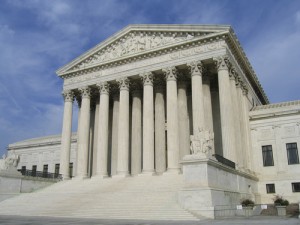USSC Says that Pharma Companies Can Be Sued for Pay to Delay Schemes
June 19th, 2013 // 12:56 pm @ jmpickett
Latest FDA and cGMP Compliance News
After many years of debate in the industry, the US Supreme Court ruled recently that pharmaceutical companies can be sued for pat to delay patent settlements. However, it also stated that the deals should not be always viewed as against the law.
In such a deal, a brand name company will pay out a settlement to a generic company to end the patent litigation and launch the generic version at a later time. This is also known as a reverse settlement, and have happened as an unexpected consequence of the Hatch-Waxman Act that passed in the early 1980s.
Download Your Free Sample – the Latest FDA 483 and Warning Letter Reports!
The USSC did not rule that reverse payment settlement agreements are illegal. Justice Stephen Breyer said that courts that are reviewing the agreements should apply their reason to the case, and not just a quick look at the case. In some cases, a reverse payment settlement can bring about anticompetitive aspects, depending upon the size of the deal, its scale, and how independent the company is.
This decision mostly vindicates the FTC position, which said that the deals are anti competitive. Their argument is that the generic company has an incentive to sue brand name companies and then take a settlement for a fast profit, and not challenge the patent in court. FTC argues that consumers can be prevented from getting lower cost drugs sooner. The FTC states that the deals cost Americans over $3 billion a year.
Pharma thinks that the settlement speed up the process of getting generics to the shelves, and it warns that banning such deals could change the decisions behind bringing many generics to market. That could hike costs for consumers. The issue has been dividing lower courts for several years.
The USSC reviewed a case from 2009, where the FTC challenged an agreement Solvay Pharmaceuticals paid three generic companies to delay the launch of copycat versions of AndroGel. AndroGel sold $400 million in 2007. FTC is now going to go ahead with litigation in that case. One of the generic firms, incidentally, was Actavis. Actavis stated that it was pleased that the deals can be considered illegal, but it said it is dismayed about the hurdles in the future. It is not happy about the increased administrative burden on the generic industry.
With this ruling, we think that generic companies may get more aggressive about making their copycat drugs, and perhaps consumers will see lower drug prices. But more litigation is going to come down, as wholesalers, insurers and retailers look at the deals more closely.
The FTC sees the USSC ruling as a big victory for the American consumer. It says that the court ruled that pay to delay deals should be scrutinized for anti-trust activity, and pay to delay deals have indeed been shown to be anti consumer.
The Generic Pharmaceutical Assn. stated this week that it was please that the court sees that the settlements need to be reviewed on a case by case basis. This gives generic companies more options for bringing cheaper drugs to patients.
Some experts think that we will see fewer pay to delay deals now. There will be a lot of litigation about past deals, according to Scott Hemphill, a professor at Columbia Law School and who specialized in anti trust cases. But he added that the ruling is not going to stop the deals. The industry has a lot of smart attorneys who can structure the agreements to avoid obvious reverse payments, but will still transfer value between the firms. The brand name firm could pay for the generic firm’s R&D or intellectual property, or other aspects of the business.



